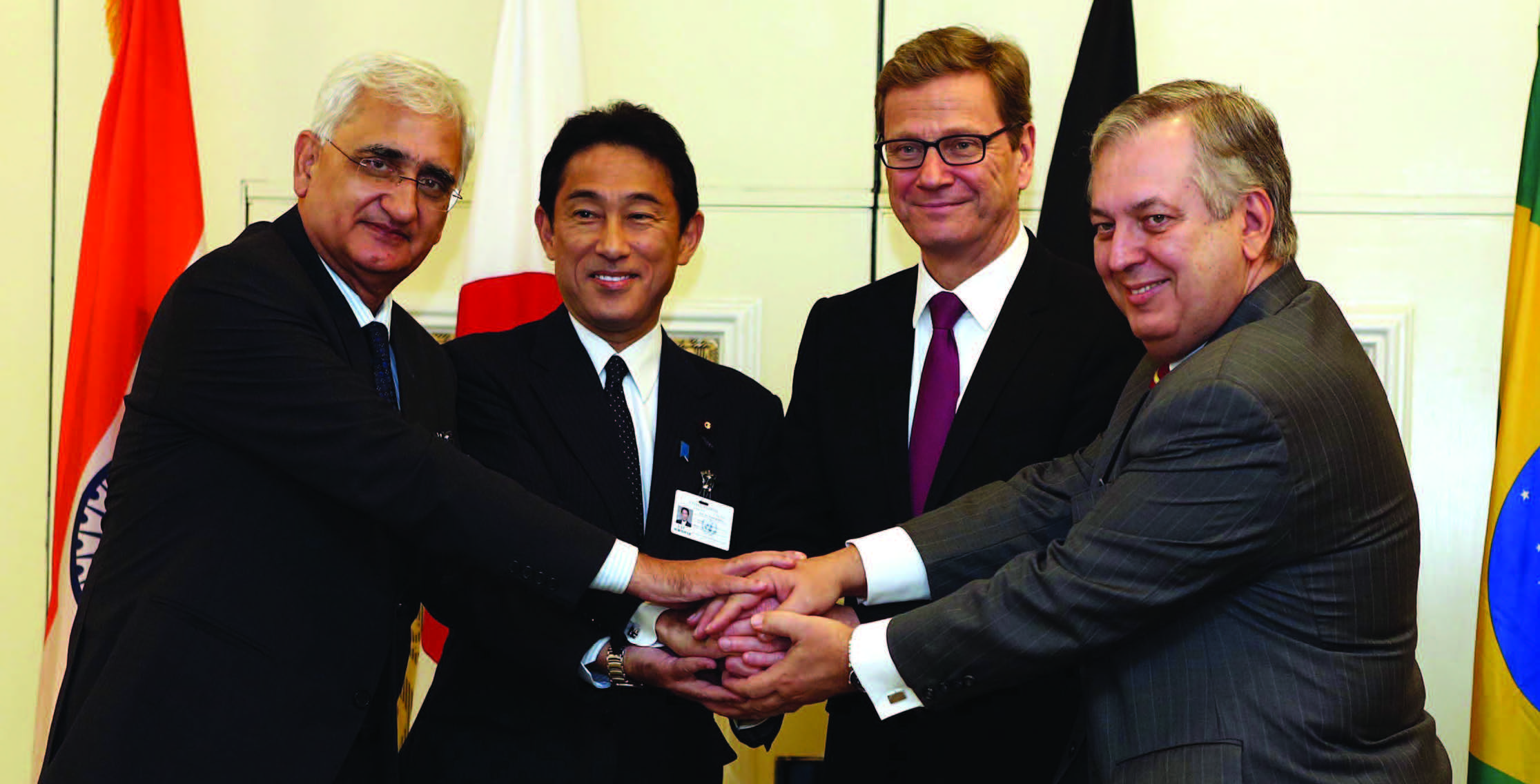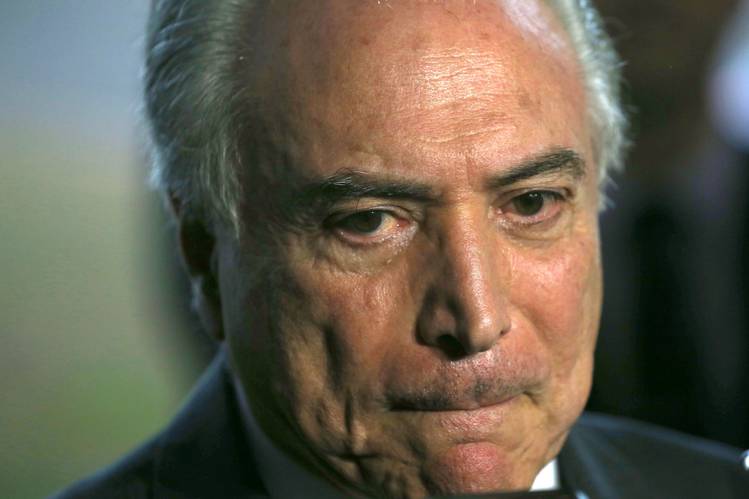
NEW YORK (TIP): The Minister of External Relations of Brazil, the Federal Minister for Foreign Affairs of Germany, the Minister of External Affairs of India and the Minister for Foreign Affairs of Japan met in New York on 26 September 2013, in the margins of the opening of the 68th Session of the United Nations General Assembly, to exchange views on Security Council reform. The Ministers underscored that, almost 70 years after the creation of the United Nations, reform of the Security Council is long overdue. They agreed that difficulties of the Security Council in dealing with international challenges, including current ones, have further highlighted the need for U.N. Security Council reform in order to better reflect geopolitical realities of the 21st century and make the Council more broadly representative, efficient and transparent and thus to further enhance its effectiveness and the legitimacy and?implementation of its decisions.
The Ministers recalled that almost 10 years ago, in the Outcome Document of the 2005 World Summit, international leaders committed themselves to an early reform of the Security Council. The Ministers stressed the need to intensify efforts to translate, at the latest by 2015, the existing agreement into concrete outcomes. Recalling previous G4 joint statements, the Ministers reiterated their common vision of a reformed Security Council, taking into consideration the contributions made by countries to the maintenance of international peace and security and other purposes of the organization, as well as the need for increased representation of developing countries in both categories, in order to better reflect today’s geopolitical realities. The G4 countries reiterated their commitments as aspiring new permanent members of the UN Security Council, as well as their support for each other’s candidatures. They also reaffirmed their view of the importance of developing countries, in particular Africa, to be represented in both the permanent and nonpermanent categories of an enlarged Council.
In this context, the Ministers emphasized the importance to enhance dialogue and outreach with African countries on Security Council reform and commended the initiative of the Government of Japan in having convened the first Japan-Africa Summit Meeting on U.N. Security Council Reform in June. In addition, the Ministers noted with appreciation the directive of CARICOM Heads of State and Government in February 2013 calling for ‘greater urgency in achieving lasting Security Council Reform’ and the initiative of CARICOM to reinvigorate the Intergovernmental Negotiation process. The Ministers recognized the need for greater involvement of civil society, the media and academia on the discussions about the reform of the Security Council and in this context, they welcomed the Brazilian initiative of hosting a seminar, in April this year, to broaden the debate on the urgency and inevitability of the reform of the United Nations Security Council. The Ministers also discussed the outcome of the ninth round of the intergovernmental negotiations on Security Council reform. The Ministers emphasized the important role the Chairman of the intergovernmental negotiations, H.E. Ambassador Zahir Tanin, has played in the negotiations, notably reflected in his letter dated 25 July 2012 to the President of the General Assembly, and welcomed anew his recommendations therein.
In this context, the Ministers reiterated that, given the overwhelming support by member states for an expansion of the Security Council in both categories of membership, permanent and non-permanent, this should be a key parameter in the negotiation process among member states. They called for the drafting of a concise working document as the basis for further negotiations, in line with the recommendations of the Chairman. The Ministers welcomed the decision by the General Assembly to immediately continue the process of intergovernmental negotiations in the informal plenary of the 68th Session, building on the progress achieved and the recommendations made by the Chairman. The Ministers underlined the need to achieve concrete progress in the 68th Session of the UN General Assembly and, in this context, expressed their commitment to continue to work in close cooperation and in a spirit of flexibility with other Member States and Groups of Member States, in particular Africa, in genuine text-based negotiations. The Ministers expressed gratitude for the efforts made by the President of the 67th General Assembly, H.E.Mr. Vuk Jeremic and the Chairman of the Intergovernmental Negotiations, H.E. Ambassador Zahir Tanin. They looked forward to working closely with H.E. Mr. John Ashe, the President of the 68th General Assembly, and the Chair of the Intergovernmental Negotiations in order to bring about the urgently needed reform of the Security Council.





Be the first to comment